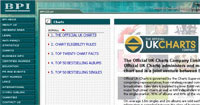 In a quest to blast their already soaring profits further up into the stratosphere, Google will test a cost-per-impression bidding model for AdWords ads, letting advertisers specify groups of sites or specific sites in Google’s ad network.
In a quest to blast their already soaring profits further up into the stratosphere, Google will test a cost-per-impression bidding model for AdWords ads, letting advertisers specify groups of sites or specific sites in Google’s ad network.
Instead of the current cost-per-clickthrough method used for text listings on its search and content networks, advertisers would set a maximum cost-per-thousand impressions price.
Google said it would operate a single auction to determine which ad to show based on the effective cost per thousand (CPM).
Advertisers would have to bid a minimum of US$2 (£1.04/€1.54) to reach a thousand people, while competing against other promoters for the same inventory, potentially leading to lucrative price wars for popular keywords, Web sites or categories.
The site-targeted ads will include static banner ads as well as animated formats – a move sure to annoy hapless surfers already weary of wriggling, spinning and rotating gizmos.
 Google has, however, promised limitations on the animated advertising fluff that can appear on their adverts, with blinking ads that continuously loop already declared verboten.
Google has, however, promised limitations on the animated advertising fluff that can appear on their adverts, with blinking ads that continuously loop already declared verboten.
Advertisers will be able to manage ads from their Google AdWords account and create their own “ad networks” by entering the URLs or themes and topics of sites where they’d like to slap up their adverts.
Google will then produce a list of suggested sites (along with a maximum number of impressions for each site), letting advertisers select the sites to run their ads.
The advertising space will come in four formats – banners, skyscrapers, wide skyscrapers and leaderboards – with Google checking submitted ads for “appropriateness”.
 The search engine heavyweights are hoping that the approach will appeal to advertisers who are fussy about where their brand appears or are aiming for a certain niche demographic.
The search engine heavyweights are hoping that the approach will appeal to advertisers who are fussy about where their brand appears or are aiming for a certain niche demographic.
“This is the first step toward meeting as many of our advertisers’ needs as possible,” said Tim Armstrong, Google’s vice president of advertising sales.
Google’s move comes as arch-rivals Yahoo prepare a significant expansion of its own service to place ads on other websites, also expected to include graphical ads.
 Over here in Digital-Lifestyles land, we’re always getting our ears bent by some PR-type banging on about how mobile TV is going to be “the next big app” to hit handsets.
Over here in Digital-Lifestyles land, we’re always getting our ears bent by some PR-type banging on about how mobile TV is going to be “the next big app” to hit handsets. M1 and its partners plan to knock out dramas with a specific mobile version, which will be different to the regular TV episodes, allowing viewers the choice of watching a broadcast TV version or an extension of the same show on mobile.
M1 and its partners plan to knock out dramas with a specific mobile version, which will be different to the regular TV episodes, allowing viewers the choice of watching a broadcast TV version or an extension of the same show on mobile. Champagne corks were popping like manic machine gun fire at Google yesterday as the company reported a thumping fivefold increase in profits in the first quarter.
Champagne corks were popping like manic machine gun fire at Google yesterday as the company reported a thumping fivefold increase in profits in the first quarter. Revenues generated from Google’s partner sites through its AdSense programs generated $584 million, or 47 percent of revenues, – a hefty 75 percent increase over partner-related revenues a year ago.
Revenues generated from Google’s partner sites through its AdSense programs generated $584 million, or 47 percent of revenues, – a hefty 75 percent increase over partner-related revenues a year ago. ITN is set to steal a march on its rivals by delivering up-to-the minute election analysis and comment through a partnership with Vodafone Live!
ITN is set to steal a march on its rivals by delivering up-to-the minute election analysis and comment through a partnership with Vodafone Live! Nicholas Wheeler, managing director of multimedia content at ITN, commented: “This is a new facility using mobile technology that was not available at the time of the last election.”
Nicholas Wheeler, managing director of multimedia content at ITN, commented: “This is a new facility using mobile technology that was not available at the time of the last election.” A coalition of government policy makers, technology and broadband companies from China have rocked up to the NAB2005 Media Show in Las Vegas.
A coalition of government policy makers, technology and broadband companies from China have rocked up to the NAB2005 Media Show in Las Vegas. The Electoral Commission is supporting efforts to get the UK’s young voters well up for the forthcoming election by encouraging them to get down wiv their mobiles.
The Electoral Commission is supporting efforts to get the UK’s young voters well up for the forthcoming election by encouraging them to get down wiv their mobiles. Becky Lloyd, campaigns manager at the Electoral Commission rapped: “It’s important that we communicate with the younger electorate in particular through a medium with which they are comfortable and familiar and mobile phones are a good way of doing this.”
Becky Lloyd, campaigns manager at the Electoral Commission rapped: “It’s important that we communicate with the younger electorate in particular through a medium with which they are comfortable and familiar and mobile phones are a good way of doing this.” Digital document software giants Adobe have announced that it will be buying up rivals Macromedia for about US$3.4 billion (£1.7bn/€2.6) in stock.
Digital document software giants Adobe have announced that it will be buying up rivals Macromedia for about US$3.4 billion (£1.7bn/€2.6) in stock. By combining the passion and creativity of two leading-edge companies, we will continue driving innovations that are changing the ways people everywhere are experiencing and interacting with information.”
By combining the passion and creativity of two leading-edge companies, we will continue driving innovations that are changing the ways people everywhere are experiencing and interacting with information.” Both products have large, loyal user bases and there may be some concern that – in the words of Sparks – “this town ain’t big enough for the both of us”.
Both products have large, loyal user bases and there may be some concern that – in the words of Sparks – “this town ain’t big enough for the both of us”. Last week, 250 executives from advertising agencies, game developers and publishers swarmed into the first annual Advertising in Games Forum on 14 April 2005 in New York City.
Last week, 250 executives from advertising agencies, game developers and publishers swarmed into the first annual Advertising in Games Forum on 14 April 2005 in New York City. For the benefit of buzzword-deficient execs, Yankee Group senior analyst Mike Goodman explained that this hideous word describes what you get when advertisers create a game around a product rather than place their brands within a well-known title.
For the benefit of buzzword-deficient execs, Yankee Group senior analyst Mike Goodman explained that this hideous word describes what you get when advertisers create a game around a product rather than place their brands within a well-known title. Fact-bloated attendees also learned that the top selling 2004 game titles (according to the NPD Group) were:
Fact-bloated attendees also learned that the top selling 2004 game titles (according to the NPD Group) were: The BBC has moved a step closer to establishing a ‘public domain of audio-visual material’ with the launch of its ‘Creative Archive’.
The BBC has moved a step closer to establishing a ‘public domain of audio-visual material’ with the launch of its ‘Creative Archive’. In a never-ending quest to stem the flow of illegal file sharing, the UK record companies’ trade association, the BPI (British Phonographic Industry), has announced that is taking legal action against another 33 illegal filesharers in the UK.
In a never-ending quest to stem the flow of illegal file sharing, the UK record companies’ trade association, the BPI (British Phonographic Industry), has announced that is taking legal action against another 33 illegal filesharers in the UK. The BPI ramped up the pressure on March 4 this year, declaring that it intended to pursue proceedings against 31 more illegal filesharers. The offenders were sent details of the BPI’s legal claims against them yesterday after their identities were revealed by their Internet service providers.
The BPI ramped up the pressure on March 4 this year, declaring that it intended to pursue proceedings against 31 more illegal filesharers. The offenders were sent details of the BPI’s legal claims against them yesterday after their identities were revealed by their Internet service providers. All of the accused are alleged to have been indulging in an orgy of uploading involving hundreds or thousands of music files illegally and face civil action for an injunction and damages.
All of the accused are alleged to have been indulging in an orgy of uploading involving hundreds or thousands of music files illegally and face civil action for an injunction and damages.